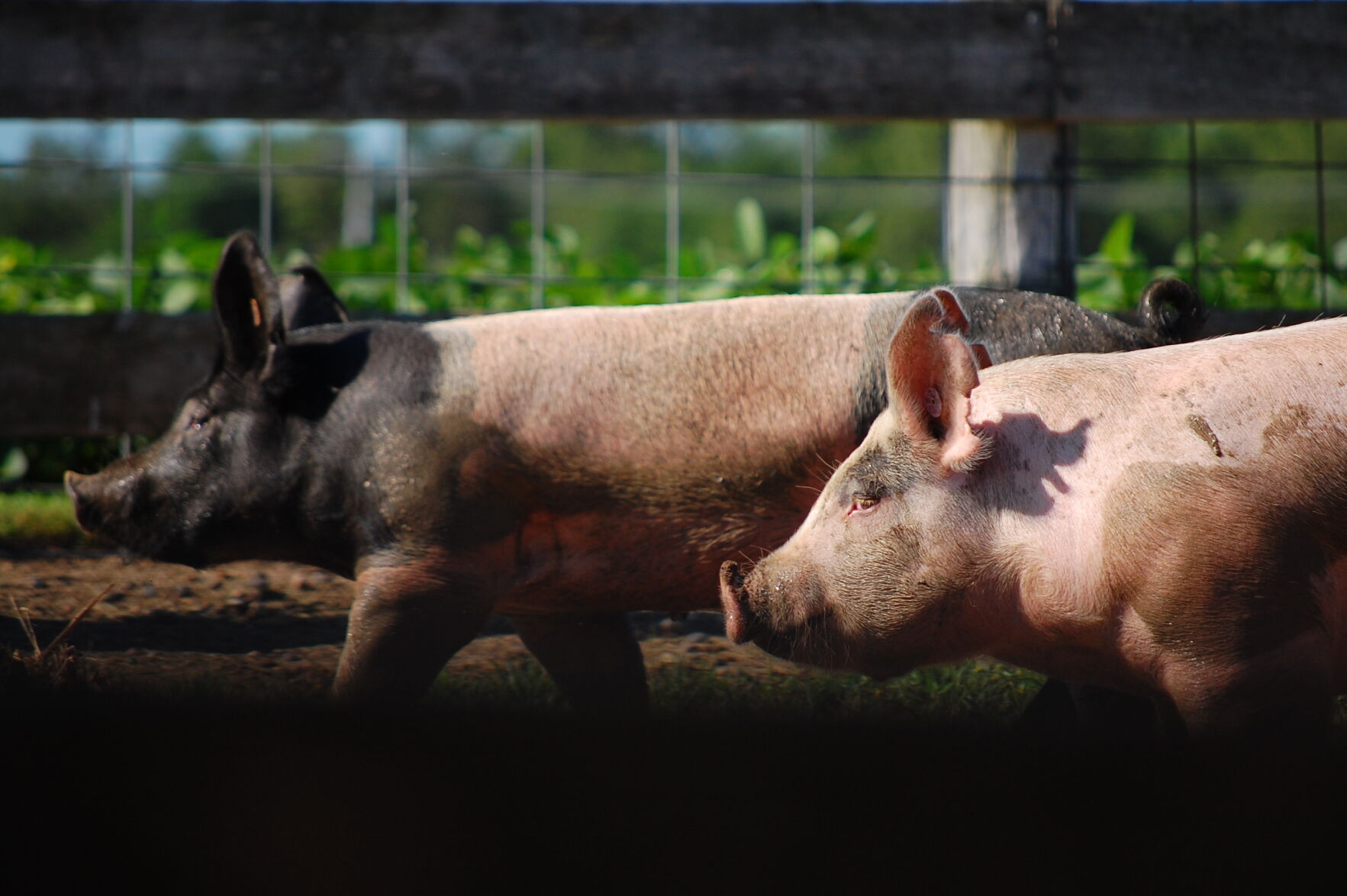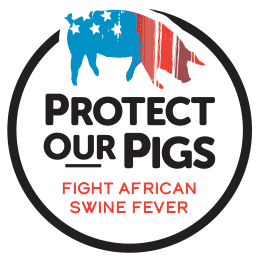The recent announcement by the U.S. Department of Agriculture that cases of African swine fever were detected in the Dominican Republic serves as reminder to those in the pork industry about the need to put biosecurity first and reassure consumers pork is safe to eat.
The United States remains free of ASF—an animal disease affecting only pigs with no human health implications—and the U.S. imports no pork, animal feed or other pork production-related products from the Dominican Republic, according to the National Pork Producers Council.
“The United States has significantly bolstered biosecurity to protect the U.S. swine herd since ASF broke in China nearly three years ago and began spreading to other parts of the world,” said NPPC Chief Veterinarian Dr. Liz Wagstrom. “We are thankful for steps taken by the USDA and U.S. Customs and Border Protection, including strengthened border inspection and the implementation of an active surveillance program designed to quickly detect and eradicate ASF.”
Dr. Rod Hall, state veterinarian with Oklahoma Department of Agriculture Food and Forestry, provided an update in a webinar on Aug. 3. He said ASF was in the news about three years ago when China had an outbreak.
While ASF is not a threat to human health and it continues to be safe to eat pork products, it is a devastating disease for swine and there is no known cure, vaccine or treatment. The disease is contagious and generally is spread from direct contact by other pigs, ticks, people, feeding uncooked garbage, clothing or equipment.
Some of the signs a hog might includes high fever, depressed appetites, red blotched skin, skin lesions, diarrhea, vomiting and coughing difficult breathing, Hall said. The signs could show in a matter of days or take as long as several weeks.
“It is much more complicated to diagnose,” he said.
What he stressed was that U.S. producers, whether on a large-scale operation or a family farm with a handful of show pigs, need to review their biosecurity protocol and work closely with their veterinarian. Some of the common biosecurity procedures include rigorously clean trailers, equipment and clothes when returning from a pig show. They should separate and quarantine new pigs before introducing them into a herd. Youth should also follow quarantine guidelines for their pigs if they have been in a show. Isolation is typically for more than two weeks.
“When you are taking pigs to a show you need to keep them away from (the rest of) your herd,” Hall said.
He reiterated that while ASF is not here today it is the first time in the Western Hemisphere in 40 years and the detection system worked.
The two Dominican Republic provinces where the detection occurred were Monte Cristi and Sanchez Ramirez. Out of 300 samples, 12 have lesions of concern. Eight of the 12 were positive for ASF. To date, 37 samples have been confirmed as positive cases. Swine production and the care provided is much different in the Caribbean than in the U.S., he said. The U.S. does not import food from the Dominican Republic.
Dominican Republic shares an island with Haiti in the Caribbean Sea and Hall would not be surprised if cases would also occur in Haiti, which had the previous cases in 1982.
“If it got here it would have serious economic consequences on the pork and ag industry,” he said, adding that 25% of pork products are headed to the export markets.
If a country has an ASF outbreak it would shut down the export market, he said, which is why prevention is necessary. Plus, if ASF was discovered, the USDA would ban shipping orders countrywide for up to 72 hours until sufficient controls were in place.
Oklahoma Department of Agriculture Secretary of Agriculture Blayne Arthur said being proactive is key. Although ASF is swine specific, she believed it would affect the livelihood of other livestock producers and have an “overarching implication on other species.”
In Oklahoma and several other hog producing states is the prevalence of feral hogs and those hogs could be carriers and infect a domestic herd, Hall said. That was another reason to alert producers of all sizes about being on guard because tracking and eradicating wild hogs is difficult. Producers, regardless of size, need to pay attention and report those animals to authorities.
Information about the disease is available at www.ag.ok.gov/disease-alerts.
Kylie Deniz, executive director of the Oklahoma Pork Council, reiterated a message to consumers, “Pork is safe to eat.”
Sign up for HPJ Insights
Our weekly newsletter delivers the latest news straight to your inbox including breaking news, our exclusive columns and much more.
She encouraged producers to think of protocols as added protection to help their friends and neighbors. She said the Oklahoma Pork Council resources that can help families who have show pigs at www.okporg.org.
Dave Bergmeier can be reached at 620-227-1822 or [email protected].


